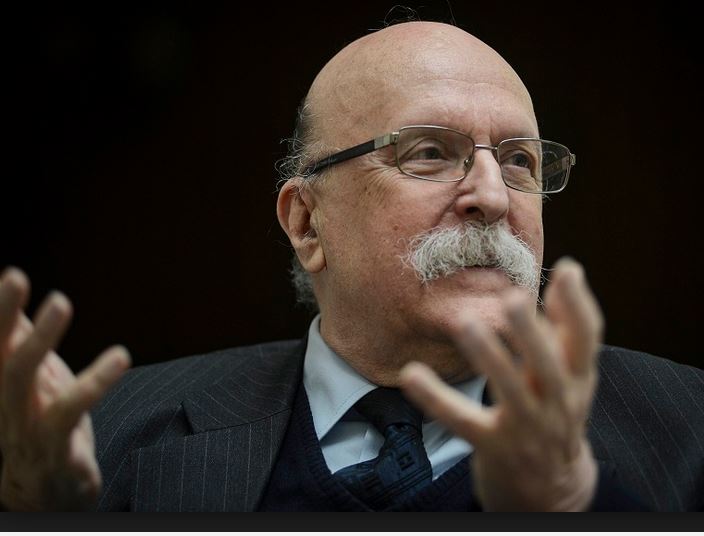Former European Court of Human Rights judge to vote No to spring hunting
At the end of yesterday’s press conference on whether referendums can be used by the electorate to force the extinction of hobbies, it occurred to me that the most important question (to my mind) had not been asked.
How would the distinguished gentlemen who had just addressed us on the subject be voting themselves? Reuben Balzan (president of the Chamber of Advocates), Giovanni Bonello (a judge at the European Court of Human Rights for many years, and latterly head of this government’s Justice Commission), Mark Bencini and Andrew Borg Cardona all said that they will vote No to spring hunting.
My next question followed on naturally from that: do they not think that politicians, who ask for our vote, are obliged to tell us how they will vote? Giovanni Bonello’s reply was: “Legally, they are not obliged to say how they will vote. But ethically and morally, they are.”
13 Comments Comment
Leave a Comment


In this case, it is the people who asked for the vote. So even if both leaders, for tactical reasons, expressed themselves openly, I would not blame or pressure any backbencher or other politician who wants to keep this vote secret. Moreso, other prominent people who has nothing to do with this issue. It should be up to them, with no pressure at all.
[Daphne – You clearly haven’t understood the first thing about democracy and your rights as an elector. Don’t extrapolate from yourself and your right to keep your vote secret. The people who ask for our vote are not in the same category. They are asking us to vote for them, therefore they have a duty to tell us what we will be voting for if we vote for them. This is in the same category as ‘MPs have a right to keep their private life secret’. No, actually they don’t. Some old lady in Hamrun with certain religious views or a strict approach to marital vows might not wish to vote for somebody who leaves his wife for his mistress. Failing to inform her of the situation is, in effect, cheating her.]
Of course they are morally obliged to tell us their voting intentions because it will affect what the voters think of them and will effect their votes, positively or negatively.
They know this which is exactly why they are keeping their traps shut.
Both major parties hold surveys asking the private citizen to divulge voting intentions.
It is the right of every private citizen to withhold such information.
Candidates, irrespective of the kind of election they are contesting, divest themselves of this right and must be held to scrutiny.
It is reasonable to say those general election candidates who will not reveal their voting intentions now do NOT deserve our vote later.
Yes, I want to know how they will be voting, because if they are supposed to be representing me, then I will make sure that it’s someone who shares my views, and who is against spring hunting.
No politician sitting on the fence or voting Yes will get my vote.
Totally agreed .
In the divorce referendum and subsequent parliamentary vote on divorce legislation, I took note of the PN members of parliament who were against the divorce bill and didn’t vote for them in the subsequent general election.
So yes it is important to know how the people who represent me vote in this case.
It is also a human right to enjoy the environment in spring time.
[Daphne – It’s not a human right. But it’s a perfectly reasonable expectation in a civilised society.]
http://www.timesofmalta.com/articles/view/20150129/local/environment-commissioner-karmenu-vella-refuses-to-declare-vote-on-spring-hunting.553889
This guy does not agree with you.
[Daphne – He was in Mintoff’s cabinet in the 1980s, so why are you surprised.]
Once upon a time most letters to newspapers were signed with a nom-de-plume. Readers and editors evolved and these screens to the identity of the writers disappeared.
Now, in this new age of freedom of expression, this habit as well as silence, are back.
Is this progress based on freedom of expression in a liberal democracy?
I am not expecting an answer from politicians.
Good, I am glad there is some agreement on this point. Therefore if I publicly ask a politician who is is after my vote whether he is a practicing Catholic (receiving the sacraments), or an atheist or agnostic, I expect a full and truthful answer.
To me is it is of greater importance than spring hunting and I trust that on the same basis no one will tell me that it is none of my business. Or do some people use two weights and two measures as soon as religion is brought up?
http://www.timesofmalta.com/articles/view/20150129/local/environment-commissioner-karmenu-vella-refuses-to-declare-vote-on-spring-hunting.553889
Ghax his situation is different ta’.
I understand all the arguments in favour of politicians having a moral duty to let us know how they will be voting.
However, I seem to recall that the coordinators who made such a huge effort to collect the signatures, requested that politicians do not get in the fray.
I think they deserved a bit of consideration.
By declaring themselves one way or another, the party leaders will have influenced the vote. Had they taken the decision to respect the request made, we would have an honest result. Whichever way it goes the result will certainly be skewed.
I think there is a good argument that once a question has been put to the people, those who usually represent us should step back and let the people decide.
It doesn’t make much difference. We shouldn’t vote No just because someone else is voting no. The same applies vice versa.
Let me be clear I will not vote. The issue of Maltese people who are temporarily working abroad and voting is still unresolved.